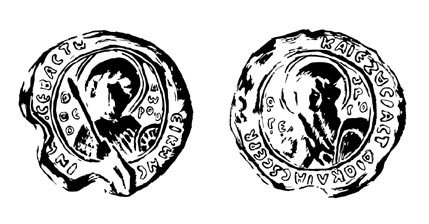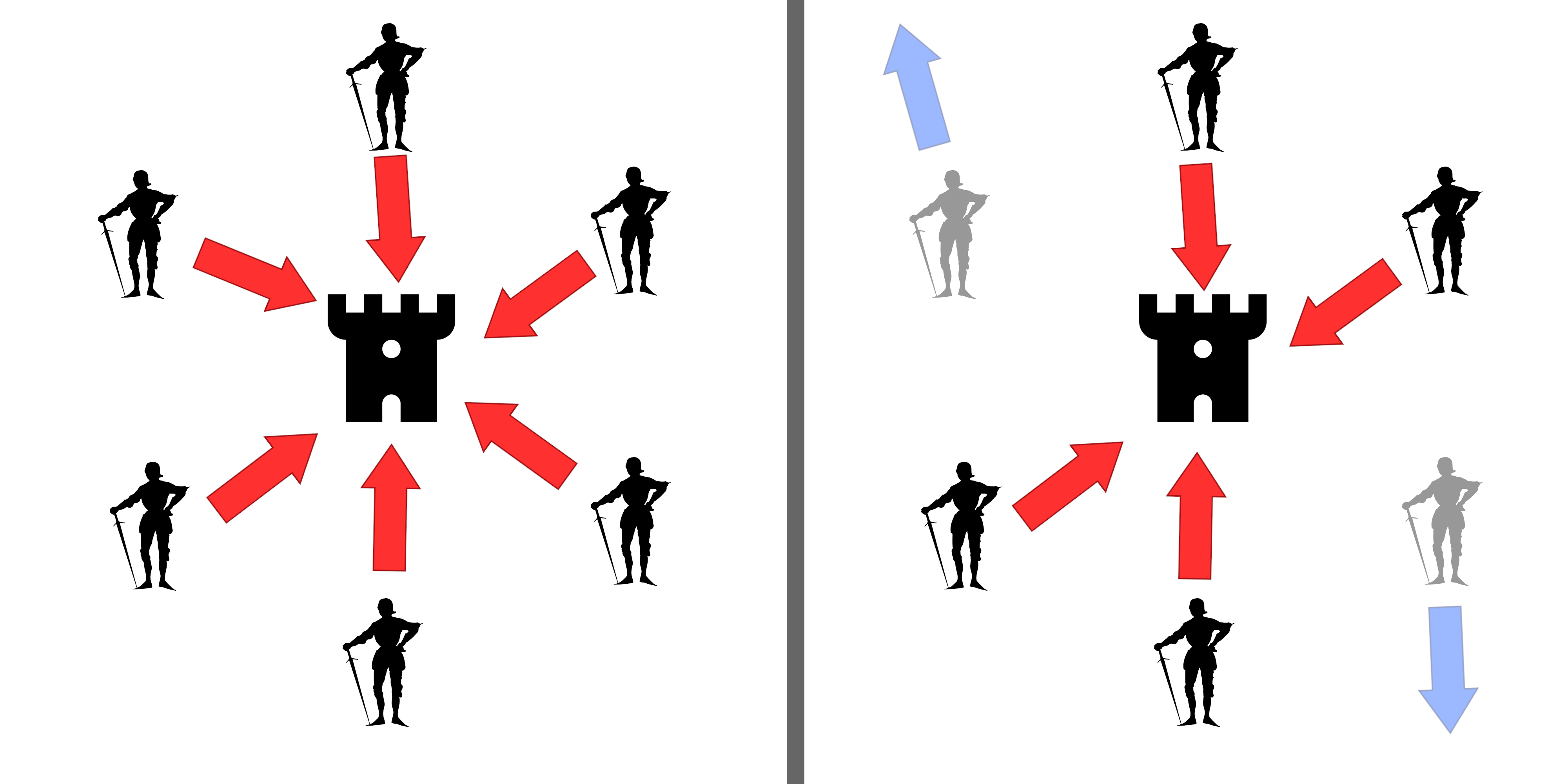|
Longibardopoulos
Longibardopoulos ( gr, Λογγιβαρδόπουλος, "son of the Lombard"; 1071–1073) was a Byzantine general, a mercenary chief, one of the commanders stationed in Macedonia during the Uprising of Georgi Voiteh (1072). Life A Lombard chief, or possibly Italo-Norman, he joined the Byzantine army rather than submit to the Normans during their conquest of southern Italy. In 1072, an uprising was prepared by the Bulgarian and Slavic nobility in Skopje led by Georgi Voiteh, known in modern historiography as the Uprising of Georgi Voiteh. The rebels chose Constantine Bodin, a Serbian prince, the son of Michael I of Duklja, as their leader, as he was a maternal descendant of the Bulgarian Emperor Samuil; in the autumn of 1072 Constantine Bodin arrived at Prizren, where he was proclaimed Emperor of the Bulgarians. A Byzantine army under Damianos Dalassenos was immediately sent from Constantinople to help the ''strategos'' of the Theme of Bulgaria, Nikephoros Karantenos. In th ... [...More Info...] [...Related Items...] OR: [Wikipedia] [Google] [Baidu] |
Constantine Bodin
Constantine Bodin (Bulgarian and sr, italic=no, Константин Бодин, ''Konstantin Bodin''; 1072–1101) was a medieval king and the ruler of Duklja, the most powerful Serbian principality of the time, from 1081 to 1101, succeeding his father, Mihailo Vojislavljević ( 1046–1081). Born in peaceful times, when the Southern Slavs were subjects of the Byzantine Empire, his father was in 1072 approached by Bulgarian nobility, who sought aid in their revolt against the Byzantines; Mihailo sent them Bodin, who was crowned Bulgarian tsar under the name Petar III ( bg, Петър ІІІ, ''Petŭr III'') joined the short-lived revolt, being captured the following year after initial success. He was freed in 1078, and upon the death of his father in 1081 he succeeded to the throne of Dioclea. Having renewed his acknowledgement of Byzantine overlordship, he soon sided with their enemies, the Normans, which resulted in a Byzantine invasion and his capture. Although he quic ... [...More Info...] [...Related Items...] OR: [Wikipedia] [Google] [Baidu] |
Strategos
''Strategos'', plural ''strategoi'', Linguistic Latinisation, Latinized ''strategus'', ( el, στρατηγός, pl. στρατηγοί; Doric Greek: στραταγός, ''stratagos''; meaning "army leader") is used in Greek language, Greek to mean military General officer, general. In the Hellenistic world and the Byzantine Empire, Eastern Roman Empire the term was also used to describe a military governor. In the modern Hellenic Army, it is the highest officer rank. Etymology ''Strategos'' is a compound of two Greek words: ''stratos'' and ''agos''. ''Stratos'' (στρατός) means "army", literally "that which is spread out", coming from the proto-Indo-European root *stere- "to spread". ''Agos'' (ἀγός) means "leader", from ''agein'' (ἄγειν) "to lead", from the proto-Ιndo-Εuropean root *ag- "to drive, draw out or forth, move”. Classical Greece Athens In its most famous attestation, in Classical Athens, the office of ''strategos'' existed already in the ... [...More Info...] [...Related Items...] OR: [Wikipedia] [Google] [Baidu] |
Byzantine Mercenaries
The Byzantine Empire, also referred to as the Eastern Roman Empire or Byzantium, was the continuation of the Roman Empire primarily in its eastern provinces during Late Antiquity and the Middle Ages, when its capital city was Constantinople. It survived the fragmentation and fall of the Western Roman Empire in the 5th century AD and continued to exist for an additional thousand years until the fall of Constantinople to the Ottoman Empire in 1453. During most of its existence, the empire remained the most powerful economic, cultural, and military force in Europe. The terms "Byzantine Empire" and "Eastern Roman Empire" were coined after the end of the realm; its citizens continued to refer to their empire as the Roman Empire, and to themselves as Romans—a term which Greeks continued to use for themselves into Ottoman times. Although the Roman state continued and its traditions were maintained, modern historians prefer to differentiate the Byzantine Empire from Ancient Rome a ... [...More Info...] [...Related Items...] OR: [Wikipedia] [Google] [Baidu] |
Italo-Normans
The Italo-Normans ( it, Italo-Normanni), or Siculo-Normans (''Siculo-Normanni'') when referring to Sicily and Southern Italy, are the Italian-born descendants of the first Norman conquerors to travel to southern Italy in the first half of the eleventh century. While maintaining much of their distinctly Norman piety and customs of war, they were shaped by the diversity of southern Italy, by the cultures and customs of the Greeks, Lombards, and Arabs in Sicily. History Normans first arrived in Italy as pilgrims, probably on their way to or returning from either Rome or Jerusalem, or from visiting the shrine at Monte Gargano, during the late tenth and early eleventh centuries. In 1017, the Lombard lords in Apulia recruited their assistance against the dwindling power of the Byzantine Catapanate of Italy. They soon established vassal states of their own and began to expand their conquests until they were encroaching on the Lombard principalities of Benevento and Capua, Saracen- ... [...More Info...] [...Related Items...] OR: [Wikipedia] [Google] [Baidu] |
Lombard Warriors
The term Lombard refers to people or things related to Lombardy, a region in northern Italy. History and culture * Lombards, a Germanic tribe * Lombards of Sicily, a linguistic minority living in Sicily, southern Italy * Lombard League, a medieval alliance of some 30 cities in Northern Italy Businesses * ICICI Lombard, an insurance company in India * Le Lombard (or Editions Lombard), a Belgian comic book publisher * Lombard Bank, a bank in Malta * Lombard Direct, an insurance company in the United Kingdom Places ;France * Lombard, Doubs, a commune of the Doubs ''département'' * Lombard, Jura, a commune of the Jura ''département'' ;United States * Lombard, Illinois * Lombard, Montana * Lombard, Wisconsin Other uses * Lombard (surname) * Lombard (gun), an early cannon * Lombard Street (other) * Automobiles Lombard, a French automobile manufacturer in the 1920s * Lombard Steam Log Hauler * Lombard language, a Romance language spoken in northern Italy (Lomba ... [...More Info...] [...Related Items...] OR: [Wikipedia] [Google] [Baidu] |
11th-century Deaths
The 11th century is the period from 1001 ( MI) through 1100 ( MC) in accordance with the Julian calendar, and the 1st century of the 2nd millennium. In the history of Europe, this period is considered the early part of the High Middle Ages. There was, after a brief ascendancy, a sudden decline of Byzantine power and a rise of Norman domination over much of Europe, along with the prominent role in Europe of notably influential popes. Christendom experienced a formal schism in this century which had been developing over previous centuries between the Latin West and Byzantine East, causing a split in its two largest denominations to this day: Roman Catholicism and Eastern Orthodoxy. In Song dynasty China and the classical Islamic world, this century marked the high point for both classical Chinese civilization, science and technology, and classical Islamic science, philosophy, technology and literature. Rival political factions at the Song dynasty court created strife amongst th ... [...More Info...] [...Related Items...] OR: [Wikipedia] [Google] [Baidu] |
11th-century Births
The 11th century is the period from 1001 ( MI) through 1100 ( MC) in accordance with the Julian calendar, and the 1st century of the 2nd millennium. In the history of Europe, this period is considered the early part of the High Middle Ages. There was, after a brief ascendancy, a sudden decline of Byzantine power and a rise of Norman domination over much of Europe, along with the prominent role in Europe of notably influential popes. Christendom experienced a formal schism in this century which had been developing over previous centuries between the Latin West and Byzantine East, causing a split in its two largest denominations to this day: Roman Catholicism and Eastern Orthodoxy. In Song dynasty China and the classical Islamic world, this century marked the high point for both classical Chinese civilization, science and technology, and classical Islamic science, philosophy, technology and literature. Rival political factions at the Song dynasty court created strife amongst ... [...More Info...] [...Related Items...] OR: [Wikipedia] [Google] [Baidu] |
11th-century Byzantine Military Personnel
The 11th century is the period from 1001 ( MI) through 1100 ( MC) in accordance with the Julian calendar, and the 1st century of the 2nd millennium. In the history of Europe, this period is considered the early part of the High Middle Ages. There was, after a brief ascendancy, a sudden decline of Byzantine power and a rise of Norman domination over much of Europe, along with the prominent role in Europe of notably influential popes. Christendom experienced a formal schism in this century which had been developing over previous centuries between the Latin West and Byzantine East, causing a split in its two largest denominations to this day: Roman Catholicism and Eastern Orthodoxy. In Song dynasty China and the classical Islamic world, this century marked the high point for both classical Chinese civilization, science and technology, and classical Islamic science, philosophy, technology and literature. Rival political factions at the Song dynasty court created strife amongs ... [...More Info...] [...Related Items...] OR: [Wikipedia] [Google] [Baidu] |
Byzantine Generals
A Byzantine fault (also Byzantine generals problem, interactive consistency, source congruency, error avalanche, Byzantine agreement problem, and Byzantine failure) is a condition of a computer system, particularly distributed computing systems, where components may fail and there is imperfect information on whether a component has failed. The term takes its name from an allegory, the "Byzantine generals problem", developed to describe a situation in which, in order to avoid catastrophic failure of the system, the system's actors must agree on a concerted strategy, but some of these actors are unreliable. In a Byzantine fault, a component such as a server can inconsistently appear both failed and functioning to failure-detection systems, presenting different symptoms to different observers. It is difficult for the other components to declare it failed and shut it out of the network, because they need to first reach a consensus regarding which component has failed in the first pla ... [...More Info...] [...Related Items...] OR: [Wikipedia] [Google] [Baidu] |
Skylitzes Continuatus
John Skylitzes, commonly Latinized as Ioannes, la, Johannes, label=none, la, Iōannēs, label=none Scylitzes ( el, Ἰωάννης Σκυλίτζης, ''Iōánnēs Skylítzēs'', or el, Σκυλίτση, ''Skylítsē'', label=none ; la, Ioannes Scyllitzes, , la, Scylitza, label=none , or la, Schillizzi, label=none ; early 1040s – after 1101), was a Byzantine historian of the late 11th century. Life Very little is known about his life. The title of his work records him as a ''kouropalatēs'' and a former ''droungarios'' of the ''Vigla'', whereby he is usually identified with a certain John Thrakesios. His major work is the ''Synopsis of Histories'' ( el, Σύνοψις Ἱστοριῶν ), which covers the reigns of the Byzantine emperors from the death of Nikephoros I in 811 to the deposition of Michael VI in 1057; it continues the chronicle of Theophanes the Confessor. There is a continuation of this work, known as ''Scylitzes Continuatus'', covering 1057 to ... [...More Info...] [...Related Items...] OR: [Wikipedia] [Google] [Baidu] |
Antioch
Antioch on the Orontes (; grc-gre, Ἀντιόχεια ἡ ἐπὶ Ὀρόντου, ''Antiókheia hē epì Oróntou'', Learned ; also Syrian Antioch) grc-koi, Ἀντιόχεια ἡ ἐπὶ Ὀρόντου; or Ἀντιόχεια ἡ ἐπὶ Δάφνῃ "Antioch on Daphne"; or "Antioch the Great"; la, Antiochia ad Orontem; hy, Անտիոք ''Antiokʽ''; syr, ܐܢܛܝܘܟܝܐ ''Anṭiokya''; he, אנטיוכיה, ''Anṭiyokhya''; ar, أنطاكية, ''Anṭākiya''; fa, انطاکیه; tr, Antakya. was a Hellenistic, and later, a Biblical Christian city, founded by Seleucus I Nicator in 300 BC. This city served as the capital of the Seleucid Empire and later as regional capital to both the Roman and Byzantine Empire. During the Crusades, Antioch served as the capital of the Principality of Antioch, one of four Crusader states that were founded in the Levant. Its inhabitants were known as ''Antiochenes''; the city's ruin lies on the Orontes River, near Antakya, the ... [...More Info...] [...Related Items...] OR: [Wikipedia] [Google] [Baidu] |




